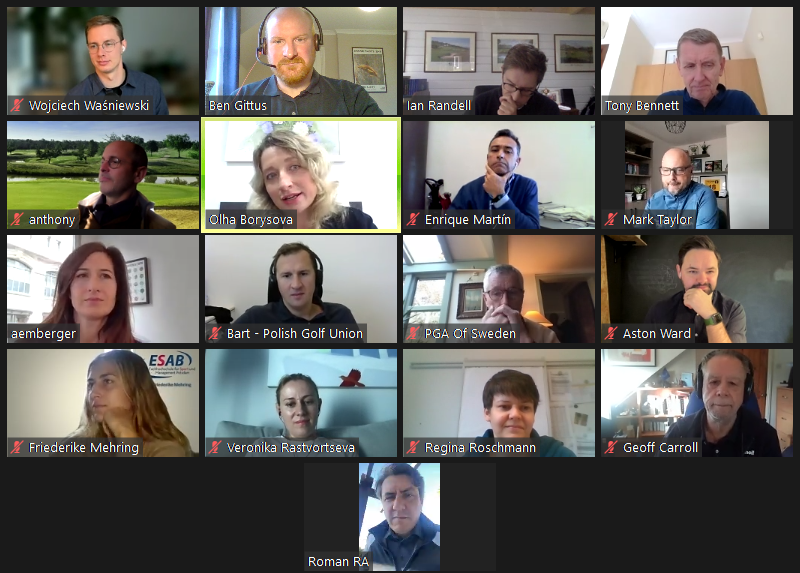Article – 12 November 2021

Partners consider key issues for the future of golf in Europe at their 2nd meeting
On the 5th of November 2021 the partners in the EU funded EDUGOLF project gathered online for their 2nd full partner meeting.
The focus of EDUGOLF is skills development and education reform, but before the work on education and skills can begin it is vital to set the project on a solid foundation of knowledge and understanding about the current situation regarding golf in Europe and consider key issues for the future of golf. This is being facilitated through the research phase of the project.
EDGA plays a key partner role in this EDUGOLF project, which will help to identify the key competences, skills and attributes of the industry workforce and shape the educational framework of new and existing golf coaches working with people with disabilities.
Prior to the meeting, the partners completed a major desk research activity to input all relevant data from their country, including new types of facilities, skills requirements, and examples of successful interventions to grow the game. All submitted data was analysed by the lead research partner National University of Ukraine on Physical Education and Sport (NUPPES).

The November meeting gave the opportunity to present key themes from the research findings so far and debate them with partners.
Full list of partners – European Observatoire of Sport and Employment (EOSE); Confederation of Professional Golf (CPG); PGA of Sweden; Polish Golf Union (PGU); French Golf Federation (FFgolf); Real Federacion Espanola de golf (RFEG); PGA of Belgium; EDGA; University of Applied Sciences for Sport and Management Potsdam (ESAB); National University of Ukraine on Physical Education and Sport (NUPPES).
The group discussed the following issues in relation to the future of golf in Europe:
- What is the golf industry and how does it link to other sectors?
- Economic and social value of golf
- Evolution of the golf industry and what does it seek to achieve today and in the future?
- Types of organisations and operating models
- Occupations in the golf industry
- Key competences, skills and attributes
- Recruitment, training and progression.
Key issues debated by the partners at the meeting included:
- The need to recognise and support the volunteer workforce to grow the game and ensure a healthy future, including the new role of “activator”
- The impact and challenges related to Covid and how it affects the future of the game
- The benefit for the future of golf which could be derived through sharing education with other sports and other disciplines
- What skills are needed by professionals in golf in order to grow participation and widen the customer base for the future?
These issues will also be covered in the next phases of EDUGOLF research including a survey of golf organisations and interviews with golf employers.
The partners now look forward to using the solid research foundations to define standards and education for golf in Europe through the innovative outputs of the EDUGOLF project.
Visit the project web page at https://edugolf.eu/
You can contact the EDUGOLF project and ask to be kept informed about developments by contacting info@edugolf.eu or subscribe on the website to be kept up to date.

